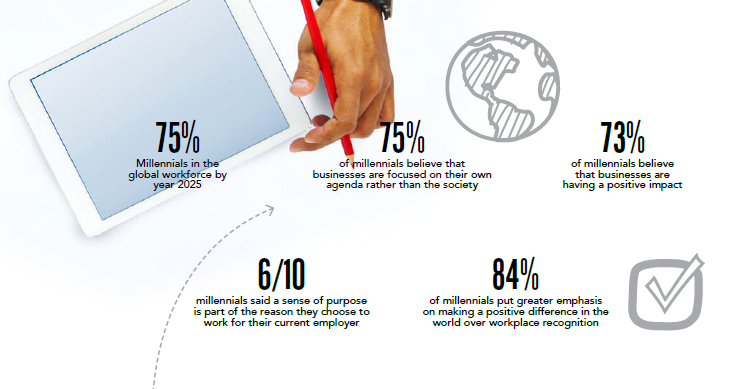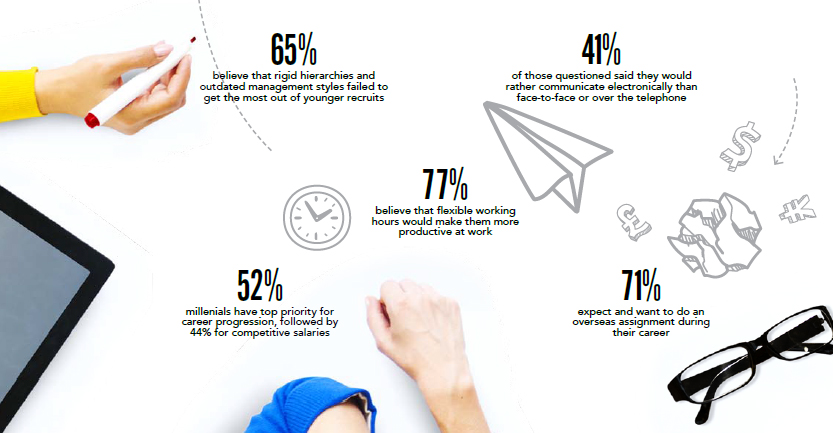There are a lot of stereotypes floating around about the Millenial talent pool. Thousands of YouTube videos, memes , jokes and articles all perpetuate the same old picture of a lazy, trophy-seeking, entitled generation simply looking to game the system and collect free money while they send snapchats from their desks.
As the industry leaders in executive search, we talk to everyone. Not just baby boomers and Gen-Xers (and we love them too). But it always comes as a shock when we clue our clients into one of the biggest executive search secrets around.
- Millenials are good.
- Millenials are really good for business.
- Millenials are really really good when they are part of your team.

Yes, soak it in. We know you haven’t seen that message floating around on too many blogs. And you may be surprised to learn that the very stereotypes that contribute to the negative perception of an entire generation are the exact attributes that make them so good for your company. I can already see some of you shaking your heads out there. And if this blog doesn’t convince you, consider this: Millenials make up 35% of the workforce. In ten years that number will be closer to 50% and in Miami and Dallas, areas attracting a wealth of younger people, the numbers push even higher than that. Most businesses can’t afford to write off more than half of the workplace when they are hoping to procure top talent. Let’s dig a little deeper.
Stereotype #1: All they do is play on their phones and goof around on social media.
Ok stop right there. Let’s sit back and think about this one. They know phones and social media communication like the back of their hands? And it’s fun for them? They are tech savvy?
As an executive search consultant I am constantly speaking to executives that are frustrated that they can’t find candidates that are familiar with CAD, BIM, CRM implementation and Project Management Software. There is also an overall shortage of marketing and communications talent in the commercial construction industry. Why not source from a pool of candidates that not only breathes tech 24/7 but actually enjoys it?
Stereotype #2: They are self-entitled and expect a big role from their first day on the job.
Millenials, more than any other generation, aren’t shy about asking for a promotion and feel ready to tackle a leadership role from day 1. This can be jarring for a manager who has given no thought to succession planning or long-term growth strategies. Digging under the surface, however, reveals a highly motivated generation that is asking you to spell out your expectations so they can succeed. Don’t be afraid to give a millennial responsibility. While that promotion may have to wait a bit longer, most millennials are simply seeking an opportunity to pick up more responsibility and be a bigger contributor to the company. Spell out your vision clearly, show them how they can help and spell out the specific metrics you will be using to gauge their performance and you will quickly reap the benefits.
Stereotype #3: They are lazy and don’t want to work a traditional 40-hr workweek.
Flexibility is a top goal for many millennials in the workplace. Old school companies who expect every employee to follow a traditional Monday-Friday schedule find themselves struggling to make accommodations for millennials and often grow resentful of their younger employee’s requests. But companies who place focus on productivity and completion of deadlines often are surprised at how “on” millennials can be, often revisiting work at nights, on weekends and even on vacations to ensure the job gets done. While they may want some flex time to achieve a better work-life balance, results-oriented companies tend to get far more than 40 hours/wk of work out of millennials. The key here is having a company structure that is equipped to deal with flex-time and an emphasis on tying success to completion of projects as opposed to the amount of hours an employee shows up in the office.
And one more thing….
Millenials probably understand your consumer audience better than you do. The inevitable end users of the very projects you are building, they can provide valuable insights on an ongoing basis in a way that no focus group could.



Recent Comments